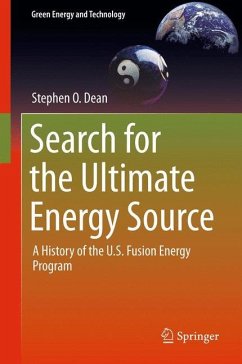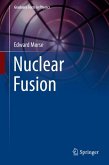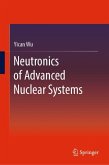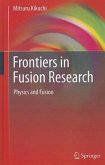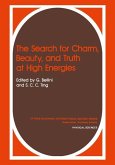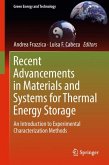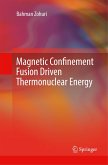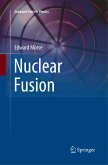Why has the clean, limitless energy promised by fusion always seemed just out of reach?
Search for the Ultimate Energy Source: A History of the U.S. Fusion Energy Program, explains the fundamentals and concepts behind fusion power, and traces the development of fusion historically by decade-covering its history as dictated by US government policies, its major successes, and its prognosis for the future. The reader will gain an understanding of how the development of fusion has been shaped by changing government priorities as well as other hurdles currently facing realization of fusion power.
Advance Praise for Search for the Ultimate Energy Source:
"Dr. Dean has been uniquely involved in world fusion research for decades and, in this book, describes the complicated realities like few others possibly could."
-Robert L. Hirsch, a former director of the US fusion program, an Assistant Administrator of the US Energy Research and Development Administration (ERDA); an executive at Exxon, Arco, and the Electric Power Research Institute (EPRI); and lead author of the book The Impending World Energy Mess (Apogee Prime Books, 2009).
"In this book, Dr. Dean provides the many reasons why fusion has progressed more slowly than many had hoped. Budget is usually cited as the culprit, but policy is equally to blame. Facilities have been closed down before their jobs were done-or in some cases, even started. It seems this situation has become endemic in fusion, and if one thinks about it, in other nationally important Science and Technology initiatives as well."
-William R. Ellis, a former scientist at Los Alamos National Laboratory, Associate Director of Research at the US Naval Research Laboratory, a vice president at Ebasco Services and at Raytheon, and chair of the US ITER Industry Council and the US ITER Industrial Consortium.
Search for the Ultimate Energy Source: A History of the U.S. Fusion Energy Program, explains the fundamentals and concepts behind fusion power, and traces the development of fusion historically by decade-covering its history as dictated by US government policies, its major successes, and its prognosis for the future. The reader will gain an understanding of how the development of fusion has been shaped by changing government priorities as well as other hurdles currently facing realization of fusion power.
Advance Praise for Search for the Ultimate Energy Source:
"Dr. Dean has been uniquely involved in world fusion research for decades and, in this book, describes the complicated realities like few others possibly could."
-Robert L. Hirsch, a former director of the US fusion program, an Assistant Administrator of the US Energy Research and Development Administration (ERDA); an executive at Exxon, Arco, and the Electric Power Research Institute (EPRI); and lead author of the book The Impending World Energy Mess (Apogee Prime Books, 2009).
"In this book, Dr. Dean provides the many reasons why fusion has progressed more slowly than many had hoped. Budget is usually cited as the culprit, but policy is equally to blame. Facilities have been closed down before their jobs were done-or in some cases, even started. It seems this situation has become endemic in fusion, and if one thinks about it, in other nationally important Science and Technology initiatives as well."
-William R. Ellis, a former scientist at Los Alamos National Laboratory, Associate Director of Research at the US Naval Research Laboratory, a vice president at Ebasco Services and at Raytheon, and chair of the US ITER Industry Council and the US ITER Industrial Consortium.
"Author Stephen Dean gives us firsthand details of how the management of the US fusion program has evolved since the 1960s. ... provide a clear, succinct, and broadly accessible description of the fundamentals of fusion and current approaches for producing fusion energy. ... Dean admirably captures the people and the spirit of the times and gives them historical context by citing notable accomplishments throughout the book." (David H. Crandall, Physics Today, Vol. 67 (3), March, 2014)
"Search for the Ultimate Energy Source begins with a primer on fusion for the layman, and describes the rich history of various alternative approaches to reaching the goal of fusion energy. ... This is a book that should be in every library, and read by citizens and policymakers, alike." (Marsha Freeman, 21st Century Science & Technology, Spring, 2013)
"In this new book, Dean begins with an introduction to the science and technology of nuclear fusion, including a case for pursuing this energy option. ... This book is ideal for historians and students of science and technology for its complete and in-depth coverage of nuclear fusion technology and policy. Dean has made a valuable contribution to the discussion of not merely the difficulties facing nuclear fusion, but the challenges of sustaining long-term energy policy in general." (Robert Margolis, ANS Nuclear Cafe, March, 2013)
"Search for the Ultimate Energy Source begins with a primer on fusion for the layman, and describes the rich history of various alternative approaches to reaching the goal of fusion energy. ... This is a book that should be in every library, and read by citizens and policymakers, alike." (Marsha Freeman, 21st Century Science & Technology, Spring, 2013)
"In this new book, Dean begins with an introduction to the science and technology of nuclear fusion, including a case for pursuing this energy option. ... This book is ideal for historians and students of science and technology for its complete and in-depth coverage of nuclear fusion technology and policy. Dean has made a valuable contribution to the discussion of not merely the difficulties facing nuclear fusion, but the challenges of sustaining long-term energy policy in general." (Robert Margolis, ANS Nuclear Cafe, March, 2013)

